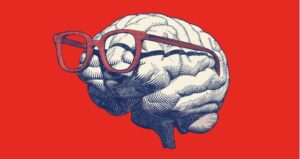
An Integrative Approach to Student Understanding and Learning
Our primary role as educators is to create learning environments that service a diverse student body. To be successful, this environment should focus on the


Our primary role as educators is to create learning environments that service a diverse student body. To be successful, this environment should focus on the

Appreciative inquiry (AI) has been effective in guiding changes in organizational and human systems through engaging stakeholders to create a transformed, shared vision of potential

I would like to begin with one of the age-old dilemmas facing instructors. We all probably concur that teamwork is a key skill needed in

In response to the worldwide spread of COVID-19, most erstwhile face-to-face and hybrid courses have now transitioned into remotely delivered ones. In these new educational

With written communication becoming increasingly multimodal—from newspaper websites to your social media feed to your learning management system’s announcements page—researchers and practitioners alike have made

As a teacher of a subject that I adore and cherish, I often find myself scrambling for enough time to cover everything that needs to be covered and still find a clever way to introduce yet another “cool story” that will further convince my students that my field (microbiology) is relevant to everyday life.
No doubt I am not alone in this challenge of finding ways to demonstrate relevancy of what we teach, but not at the complete expense of the time and effort we desperately need to guide our students through challenging, key concepts and ideas.

“Even with years of teaching experience since then [grad school TA experience], there were still areas of my pedagogy that remained as they always had been—unexamined and essentially running on autopilot.” So writes Kevin Gannon in an excellent piece on redesigning his exams (Chronicle of Higher Education, March 6, 2017). I appreciate the honesty of his admission and suspect it resonates with many of us.
Some of what’s unexamined in the practice of many faculty are what seem like intractable problems—say cramming and procrastination. Students have procrastinated for decades—some of us did when we were students and a few (?) of us still do. It’s a perennial problem for anyone who teaches, there can’t possibly be a solution or someone would have come up with it by now. In fact, that was basically the conclusion of a colleague who wrote to me recently. “My students procrastinate. It compromises the quality of their work and diminishes what they learn, but I’ve come to accept it as a given.”

How do students think about assignments? A lot never get past the idea that they’re basically unpleasant things faculty make them do. What does interest a lot of students is finding out what the teacher wants in the assignment, not so much what the assignments asks but more seeking insight as to what the teacher “likes.” Discover that and there’s a better chance of a good grade, or so the thinking goes. Unfortunately, very few students look at an assignment and think, now there’s an interesting learning opportunity.

Midterm evaluations bring a host of institutional measures to reach out to underachieving students. However, what might make the most difference to students’ success in their courses is to enable them to assess their own performance and set goals as well as to ask questions of and provide feedback to the instructor. Instructors can give students this reflective opportunity through an online journal assignment in which students do the following:
Blogging can be a tool that aids learning. “Blogs provide students with an opportunity to ‘learn by doing’ to make meaning through interaction with the online environment.” (p. 398) They provide learning experiences described as “discursive,” meaning students learn by discussing, which makes blogs a vehicle for knowledge construction. They exemplify active learning and can promote higher-order thinking. Potential outcomes like these give teachers strong incentives to explore their use.
Get exclusive access to programs, reports, podcast episodes, articles, and more!